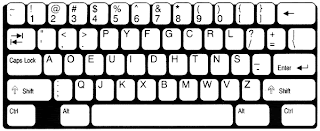The Quiet...
A few years ago, I was reading George Carlin's book Brain Droppings, and he had a fascinating tidbit in there about the noise of the world now and the world little more than one hundred years ago. He mentioned that one hundred years ago, there were no cell phones, no televisions, no satellites, no internet, no radio. Today there are waves of nearly every form and frequency flowing through the air and through our very bodies. Constantly. We are ceaselessly bombarded now. One hundred years ago there was nothing. Complete silence. No wonder disappearing into the high California mountains has always felt so healing and clean (despite the usual company I was with.)
This thought came back to me the other day as I was getting my morning dosage of my unfortunate addiction. At the gas station, pumping through the speakers that freezing morning, was music. A radio station is on for all to hear. It occurred to me that not all too long ago, one would rarely hear music on a daily basis. At least not as we do today.
From every direction and angle, music is piped into our lives. There is now no longer a corner of our world free of music. That is not to say music is in any way a bad thing. Humans have always not only enriched their lives through music, but have used music to help define it. But now, the overuse of music has diminished its impact, leaving it trivial and empty.
Perhaps this is evidence of a different situation altogether. Having all this music around to accentuate our lives is creating something. We now can have our own personal soundtracks as it were. As though one's life is a movie (which many dream it could be), background music can emphasize, accentuate, or even change our moods. One may envelop themselves into a world of their own creation. Well, not exactly their own creation, as the music is composed (or, more frequently, manufactured as I tend to call it) by those not even remotely connected to them.
Individuals seem to now close themselves off from the world more frequently and quite voluntarily. They see and hear only what they wish to. The true reality that they are in fact touching, smelling, and hearing, is being shunned for their own preferences. A music player always in their ears and colored sunglasses in front of their eyes, they drown out the world around them to instead feel what they have carefully filtered and adulterated. The sense of distinction between what is actual versus notional, as well as the feelings of connection to what naturally encompasses us all, dull to the point of numbness.
The topic of this sort of self-absorbtion is one on which I shall assuredly return. While I am a strong believer in the idea that the individual human will is the single strongest force we know in this world, I also fall into what is simply a truth; that we are not alone and that we are inherently social creatures. The soul of a single person grows from its interactions with others, and it is this collection that creates a community, allowing us to achieve more than any one person could ever possibly do.
And that last paragraph gave me a whole other set of ideas to play with. Toodles~


